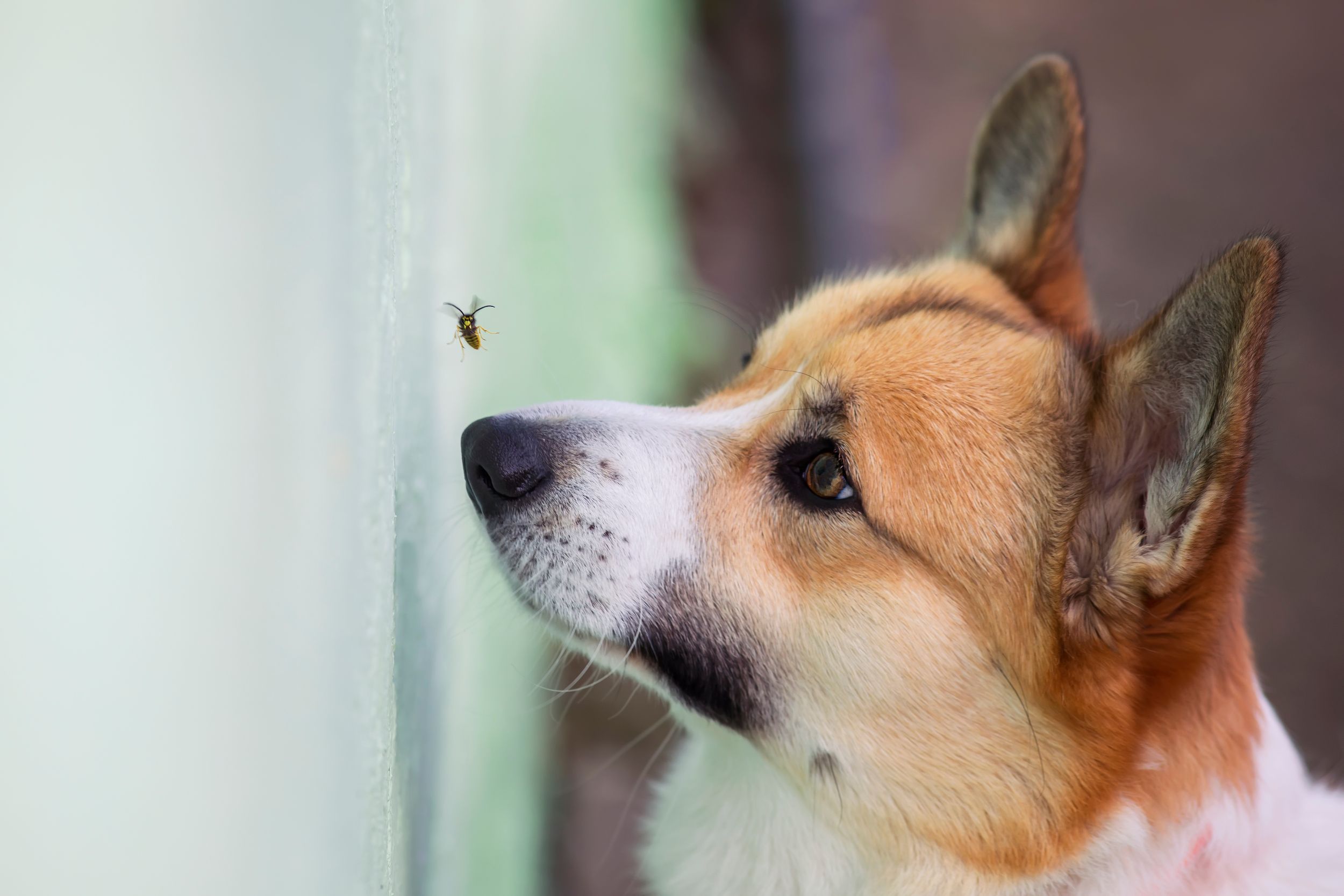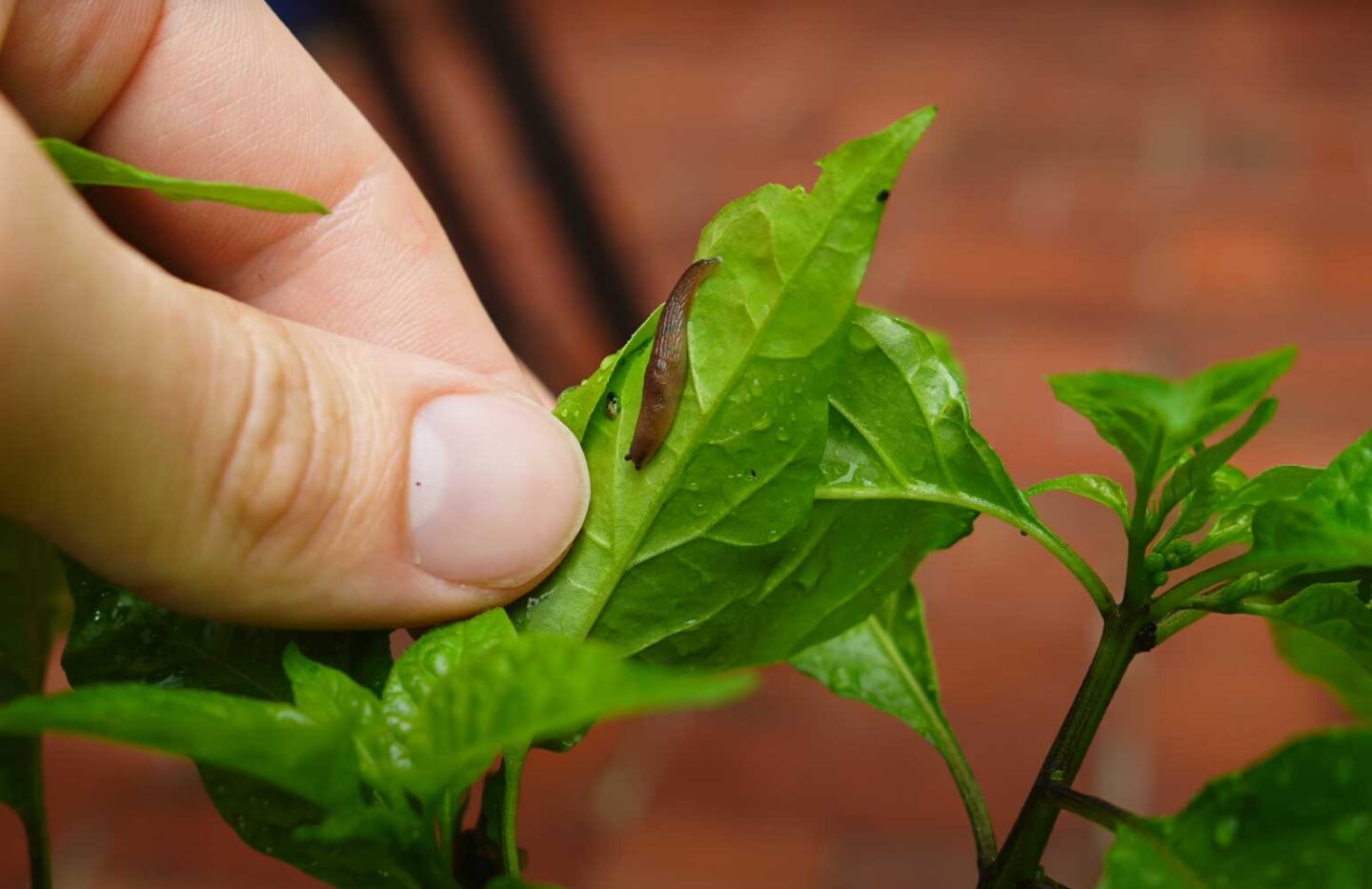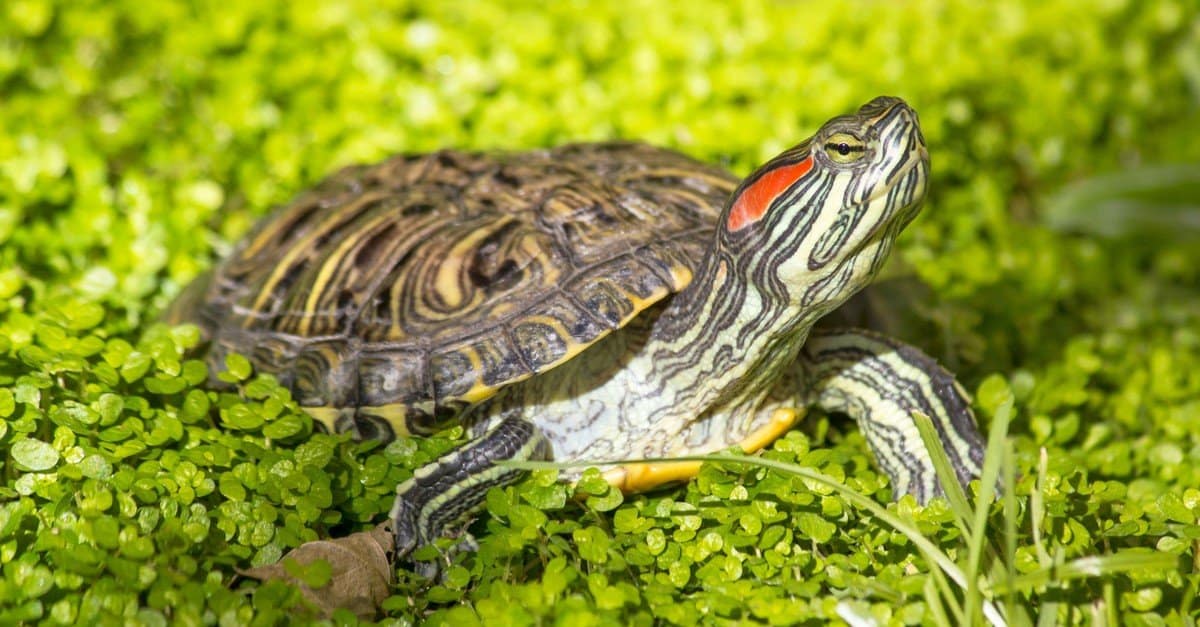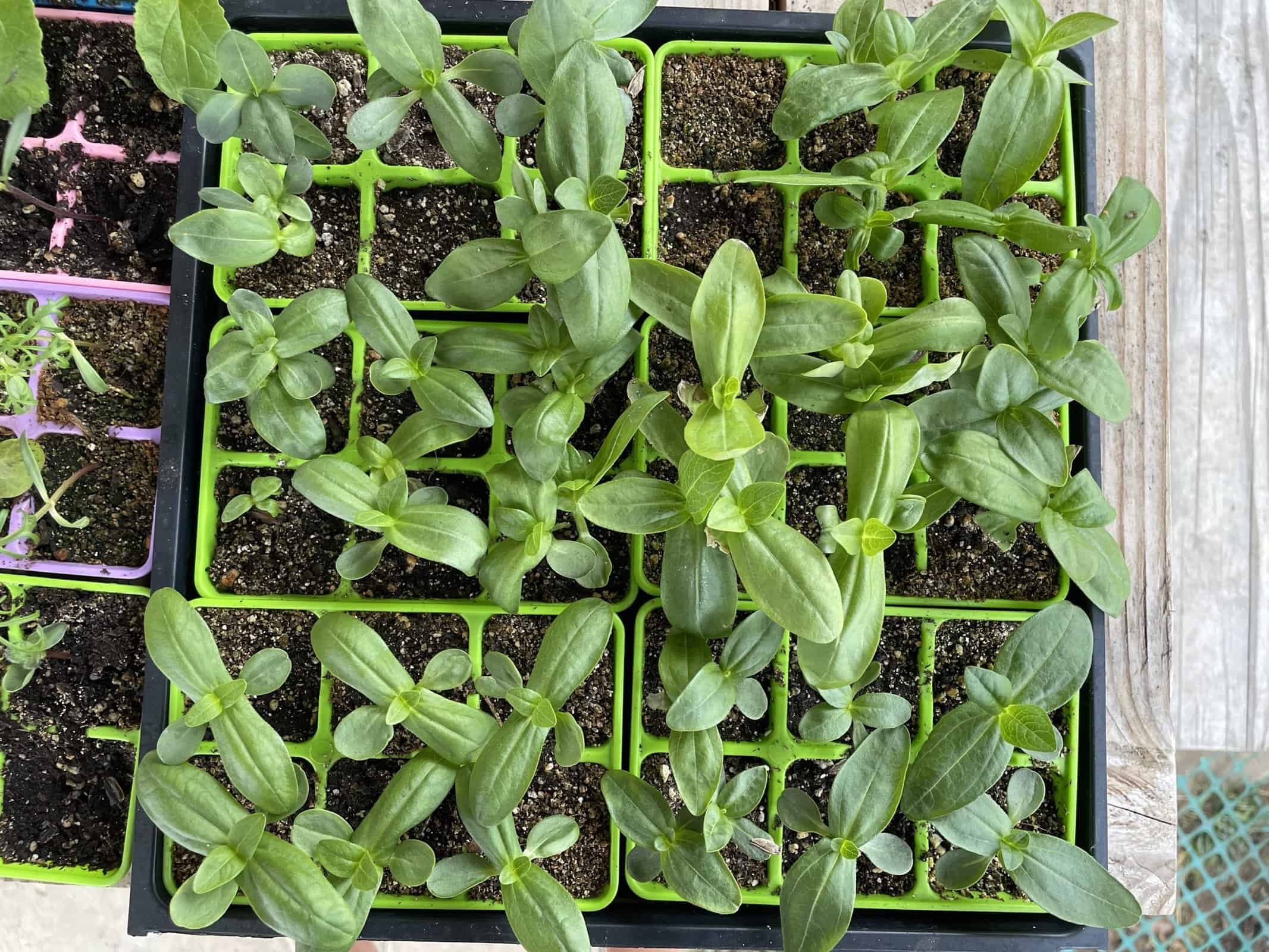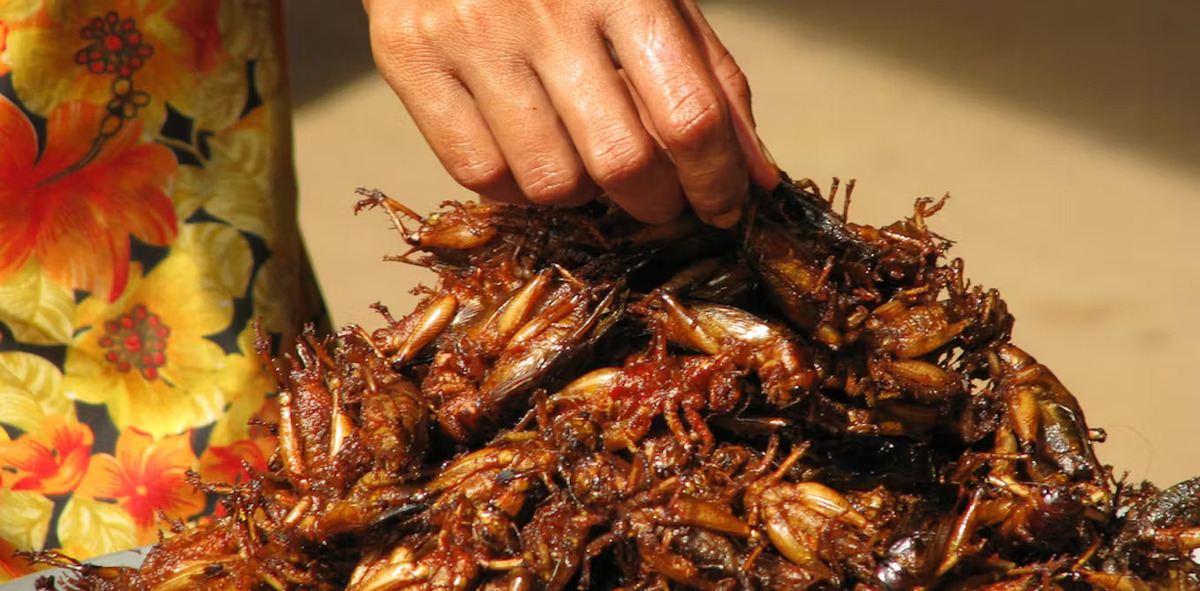Home>Gardening Tips and Tricks>Problem Solving>How To Stop Insects From Eating My Elephant Ears
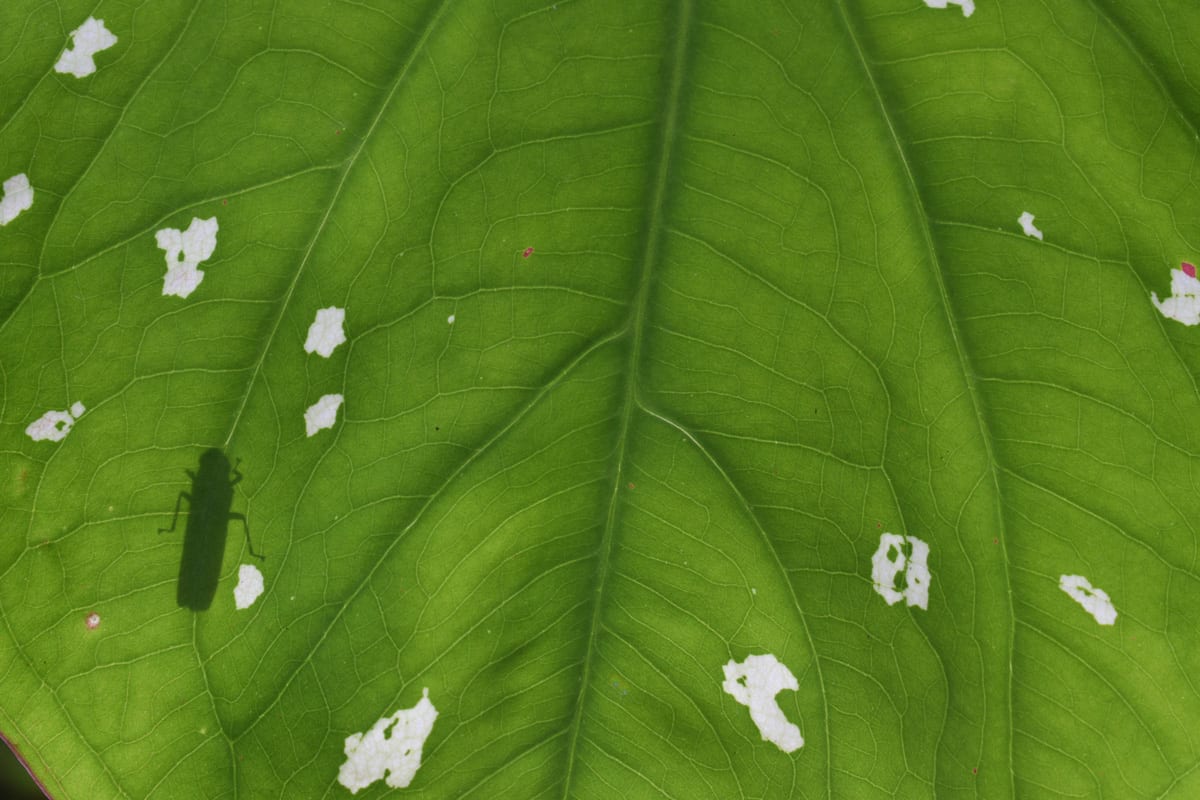

Problem Solving
How To Stop Insects From Eating My Elephant Ears
Modified: January 22, 2024
Learn effective problem solving techniques to protect your elephant ears from being devoured by pesky insects. Stop the infestation and preserve the beauty of your garden.
(Many of the links in this article redirect to a specific reviewed product. Your purchase of these products through affiliate links helps to generate commission for Chicagolandgardening.com, at no extra cost. Learn more)
Table of Contents
- Introduction
- Understanding the Threat of Insects to Elephant Ears
- Identifying Common Insects That Eat Elephant Ears
- Natural Methods to Repel Insects from Elephant Ears
- Chemical Insecticides for Controlling Insects on Elephant Ears
- Preventative Measures to Minimize Insect Damage on Elephant Ears
- Conclusion
Introduction
Welcome to the world of gardening, where we cultivate beautiful plants and watch them thrive in our own backyard. One such striking plant is the elephant ear, known for its large, vibrant leaves that resemble the ears of an elephant. However, as with any cherished plant, it is crucial to protect it from potential threats, and one of the most common challenges gardeners face is insects feeding on their beloved elephant ears.
Insects can cause significant damage to the foliage of elephant ears, leading to stunted growth, wilting, and even the death of the plant if left unchecked. But fret not! In this article, we will explore various methods to effectively repel insects from your elephant ears, ensuring they thrive and become the centerpiece of your garden.
To combat this problem, it is essential to understand the types of insects that commonly feed on elephant ears and the various strategies we can employ to keep them at bay. We will also discuss natural remedies and chemical insecticides that can be used, along with preventative measures to proactively minimize insect damage.
Whether you are a seasoned gardener or just starting out, this guide will equip you with the knowledge and tools to protect your elephant ears from pesky insects. Let’s dive in and discover how to keep these fascinating plants insect-free, so you can enjoy their beauty for years to come.
Understanding the Threat of Insects to Elephant Ears
Before we delve into the methods of repelling insects from elephant ears, let’s take a moment to understand the threat they pose to these magnificent plants. Insects can cause considerable damage to the foliage, hindering the growth and overall health of the elephant ear plant.
One of the most common insects that pose a threat to elephant ears is the aphid. These tiny, soft-bodied insects feed on the sap of the plant, causing the leaves to curl, yellow, and distort. Aphids multiply rapidly, leading to severe infestations if not addressed promptly.
Another troublesome insect is the spider mite. These minuscule pests are difficult to spot initially but can multiply rapidly under favorable conditions. Spider mites pierce the leaves to feed on plant sap, leaving behind tiny yellow spots or a stippled appearance on the foliage.
Caterpillars are also known to feast on elephant ear leaves. Caterpillars of moths or butterflies can chew through the leaves, creating irregular holes and damaging the aesthetic appeal of the plant.
Furthermore, beetles such as flea beetles and weevils can cause significant damage to the leaves by feeding on them. These beetles can leave behind skeletonized leaves or irregular chew marks.
It is vital to address insect infestations promptly as they not only affect the appearance of the plant but also weaken its overall health and vitality. In extreme cases, untreated infestations can lead to the death of the elephant ear, resulting in the loss of a cherished plant in your garden.
Now that we have a clear understanding of the threat that insects pose to elephant ears, let’s explore effective methods to repel and control these pesky intruders. By taking proactive measures, we can ensure the health and beauty of our elephant ear plants.
Identifying Common Insects That Eat Elephant Ears
In order to effectively combat insect infestations on elephant ears, it is essential to be able to identify the common culprits that feed on these plants. Let’s take a closer look at the most prevalent insects that pose a threat to elephant ears:
- Aphids: Aphids are small, soft-bodied insects that come in a variety of colors, including green, black, yellow, and even pink. They are often found in large colonies on the undersides of leaves and feed on the plant’s sap, causing leaf curling, distortion, and yellowing.
- Spider Mites: Spider mites are tiny arachnids that can be difficult to spot with the naked eye. They are usually reddish or yellowish in color and often create fine webbing on the underside of the leaves. Spider mites feed on plant sap and can cause stippling, yellowing, and even leaf drop if left untreated.
- Caterpillars: There are various species of caterpillars that can feed on elephant ear leaves. They can be green, brown, or even vibrant in color. Caterpillars chew through the foliage, leaving behind irregular holes and damage to the leaf structure.
- Beetles: Flea beetles and weevils are two common types of beetles that can cause damage to elephant ear leaves. Flea beetles are small and often jump when disturbed, while weevils are characterized by their elongated snouts. Both types of beetles chew on the leaves, resulting in skeletonized foliage or irregular chew marks.
By being able to identify these common insects, you can be more observant and take timely action to prevent or control infestations on your elephant ear plants. Remember to inspect the leaves regularly, especially the undersides, for signs of insect activity.
Now that we are familiar with the insects that eat elephant ears, let’s explore various methods to repel and control them to ensure the health and vitality of our beloved plants.
Natural Methods to Repel Insects from Elephant Ears
When it comes to protecting your elephant ears from insects, natural methods can be both effective and environmentally friendly. Here are several natural remedies you can try:
- Neem Oil: Neem oil is a potent natural insecticide with both repellent and insecticidal properties. Dilute neem oil according to the manufacturer’s instructions and spray it on the leaves of your elephant ears. Neem oil disrupts the feeding and reproductive habits of insects, effectively deterring them from infesting your plants.
- Garlic and Chili Spray: Create a homemade insect repellent by combining minced garlic or garlic powder with chili peppers and water. Let the mixture sit overnight, strain it, and then spray it onto the leaves of your elephant ears. The strong scent acts as a deterrent, keeping insects away from your plants.
- Diatomaceous Earth: Diatomaceous earth, a powdery substance made from fossilized algae, is an effective natural insect repellent. Sprinkle a thin layer of diatomaceous earth around the base of your elephant ear plants. When insects come into contact with the powder, it damages their exoskeletons, leading to dehydration and eventually death.
- Natural Predators: Encouraging natural predators like ladybugs, lacewings, and predatory mites in your garden can help control insect populations. These beneficial insects feed on common pests like aphids and spider mites, providing a natural form of pest control for your elephant ears.
- Companion Planting: Planting insect-repellent herbs like basil, marigold, and mint around your elephant ears can help deter insects. The strong fragrances and natural compounds emitted by these plants act as a natural repellent, keeping pests away from your valuable foliage.
Utilizing these natural methods not only protects your elephant ears from insect damage but also maintains a healthy and chemical-free environment in your garden. Remember to apply these remedies regularly and consistently for the best results.
Now that we’ve explored natural methods to repel insects, let’s investigate the use of chemical insecticides as an alternative control method for severe infestations.
Chemical Insecticides for Controlling Insects on Elephant Ears
While natural methods are often preferred for repelling insects from elephant ears, there may be instances where a more potent solution is necessary. Chemical insecticides can provide effective control against severe infestations. Here are a few options to consider:
- Pyrethroid Insecticides: Pyrethroids are synthetic insecticides derived from natural compounds found in chrysanthemum flowers. They are widely used for controlling a variety of insects, including aphids, caterpillars, and beetles. Look for pyrethroid-based sprays specifically formulated for ornamental plants and follow the instructions carefully.
- Systemic Insecticides: Systemic insecticides are absorbed by the plant and provide long-lasting protection. These products are applied to the soil or sprayed onto the leaves, and the active ingredients are taken up by the plant’s vascular system. Systemic insecticides are effective against chewing and sucking insects, but be cautious about the potential impact on beneficial insects.
- Botanical Insecticides: Botanical insecticides, such as spinosad, are derived from natural sources and are less harmful to the environment. They target a broad spectrum of insects and have low toxicity to humans and animals. Follow the manufacturer’s instructions for proper application and safety precautions.
- Granular Insecticides: Granular insecticides are often used as a preventive measure by applying them to the soil around the base of the elephant ear plant. The granules release the insecticide slowly, providing long-term protection against pests. Be sure to choose a product suitable for ornamental plants and apply it according to the instructions.
When using chemical insecticides, it is vital to carefully read and follow the instructions provided on the product labels. Take the necessary precautions, such as wearing protective gloves and clothing, to ensure your safety during application. It’s also important to be mindful of the potential impact on beneficial insects and the environment.
While chemical insecticides can provide effective control, it is recommended to exhaust natural methods and only resort to chemical treatments as a last resort or if the infestation reaches a critical level.
Now that we’ve explored chemical insecticides, let’s move on to preventative measures that can help minimize insect damage on elephant ears.
Preventative Measures to Minimize Insect Damage on Elephant Ears
Prevention is key when it comes to minimizing insect damage on your beloved elephant ears. By implementing certain preventative measures, you can create an environment that is less attractive to pests. Let’s explore some effective strategies:
- Maintain Proper Plant Health: Healthy plants are less susceptible to insect infestations. Ensure your elephant ears receive adequate sunlight, water, and nutrients to promote strong growth. Avoid over-watering, as this can create favorable conditions for pests.
- Inspect Regularly: Regularly inspect your elephant ears for signs of insect activity. Check the undersides of the leaves, as insects often hide there. Early detection allows for prompt action to prevent the infestation from spreading.
- Remove Infested Leaves: If you spot leaves with heavy infestations, promptly remove them from the plant to prevent the insects from spreading. Seal them in a plastic bag and dispose of them away from your garden to minimize the risk of reinfestation.
- Encourage Air Circulation: Adequate air circulation can deter certain insects, as they prefer stagnant environments. Avoid overcrowding your elephant ears by providing sufficient spacing between plants. Pruning can also help promote air circulation within the foliage.
- Mulch with Organic Materials: Applying a layer of organic mulch, such as wood chips or compost, around the base of your elephant ears can deter insects and retain soil moisture. Mulch acts as a physical barrier and helps prevent weeds that may attract pests.
- Regularly Clean the Garden: Keep your garden tidy by removing fallen leaves and debris. This reduces hiding places for insects and eliminates potential breeding grounds.
- Companion Planting: Select companion plants that repel insects and plant them alongside your elephant ears. Plants such as lavender, catnip, and marigold have natural insect-repellent properties and can help protect your elephant ears.
By implementing these preventative measures, you can create an environment that is less favorable for insect infestations. However, it’s important to remember that even with these precautions, occasional pest problems may occur. Regular monitoring and timely action are key to maintaining the health and beauty of your elephant ear plants.
Now that we’ve explored preventative measures, let’s wrap up our guide on how to stop insects from eating your elephant ears.
Conclusion
Protecting your elephant ears from insect damage is a crucial part of maintaining their health and beauty. By understanding the threat of insects, identifying common pests, and employing effective methods, you can ensure that your elephant ears thrive.
Starting with natural methods, such as using neem oil, garlic and chili spray, diatomaceous earth, and attracting natural predators, you can repel insects without harming the environment. These remedies provide a safer and more sustainable approach to pest control.
If natural methods are not enough to handle severe infestations, chemical insecticides can offer a more potent solution. Pyrethroids, systemic insecticides, botanical insecticides, and granular insecticides are options to consider. Remember to follow the instructions and take necessary precautions when using chemical treatments.
Additionally, implementing preventative measures plays a crucial role in minimizing insect damage on elephant ears. Proper plant care, regular inspections, removing infested leaves, promoting air circulation, mulching, keeping the garden clean, and utilizing companion planting can help prevent infestations from occurring in the first place.
By combining these strategies, you can create a resilient and insect-free environment for your elephant ears to flourish. Remember to observe your plants, stay vigilant against potential pests, and take prompt action to address any issues that arise.
So, go ahead and enjoy the beauty of your elephant ear plants, knowing that you have the knowledge and tools to keep them protected and thriving. With a little effort and care, you can keep those pesky insects at bay and showcase stunning, healthy elephant ears in your garden for years to come.


